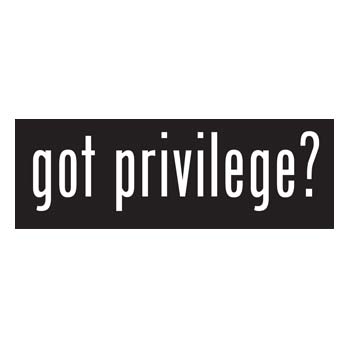How does one carry the burden of awareness? Awareness can be a gift or a curse, depending upon the kind of environment the individual is thrust into. Awareness can allow one to see the broader systems of things, but also leave the observer in a dilemma. Not only does the aware individual (who we will call the observer) have to come-to-terms with their lot in life (their liberty, socio-economic status, imposed cultural identity, etc.), they also inevitably must take responsibility for their participation, even indirectly, in the systems around them, in the way their society and species behave. How does one carry this burden? Innocence cannot survive in the aware, in the observant, in the thinker. Both the roles of victim and perpetrator can ultimately apply to every human on the planet in varying contexts and degrees. An example might be a logger cutting down protected parts of the Amazon in order to feed his or her family. What this binary implies is an inevitable guilt. Being a victim allows a card to be played in one’s favor, but how can one live a life after victimization that doesn’t consist of advocating reform? And if this reform isn’t possible given the power or liberty one has given their status, what then? One tries to enact change to their greatest ability but if it does not have the desired effect then guilt is right around the corner.
It goes without saying that many perpetrators are in fact sociopaths that understand the effects of their actions but carry them out anyways. But what about those who are unknowing perpetrators? This represents the majority, and the core of my inquiry. Awareness brightens the darkest corners of our epistemic blind spots, and allows us (in some cases) to realize the systems we are not only a part of but are condoning and perpetuating via our actions. But what if those actions ensure comfortability, and/or provide basic needs? Are we supposed to be guilty about ensuring our survival? The thing is, in developed nations, ‘survival’ has a very different meaning then it does for those in the underdeveloped or developing. In fact, I would suggest (and its not a stretch) that most of those in the ‘developed’ world do not know the true meaning of survival at all. I can’t skip a meal without throwing a fit, but there are many people in the world that would give anything for even one consistent meal a day. Should I feel guilty about this? Does my lifestyle impact the ability for others to acquire basic needs?

Unfortunately those of us in the developed world that decide to reflect on such things have to be inconvenienced by troubling emotions. We managed to evade outright blatant slavery and oppression, mostly being the perpetrators in that act, and we have been privileged enough to come from a heritage of global dominance. Our problems stem from the backs of the oppressed. Now, in the 21st century, the greatest step towards humanity’s reform is the humbling of the hegemonic nations and their peoples. Maybe, as the global inequality gap continues to widen (right now with 62 people having as much wealth as half the global population) those previously accustomed to benefits derived from the detriment of others may begin to finally relate with those victims of hegemonic actions. Maybe guilt could be good for us. Guilt is powerful.
Although a negative emotion, maybe guilt can be used for good. There is far too much denial infecting the masses. People suffering delusion at an epidemic scale. For an empath the suffering of a stranger can easily be related too. For this reason empaths cannot know things and remain inactive without consequence, especially guilt. Many activists are empaths because the golden rule compels them to take action that would try and prevent such feelings of suffering from occurring to anyone. For anyone feeling such a thing would also be felt by the empath and therefore no feeling is purely individual to the empath. In the realm of collective emotion can guilt be used to conduct a societal overhaul? Is guilt the wrong motivator? It is one argument by reformists that the values of the intended result must be carried through the reform, meaning the end does not justify the means and vise versa. They would argue that guilt is the wrong motivator for change. Many activists fall into the same pattern of using fear propaganda to push their agenda that the hegemony does, and this might be what they are trying to avoid by not using guilt as a motivator. I can’t help but agree with them, but what, then, is an effective and proper motivator?
I don’t know the answer to any of these questions. I don’t know what to do about the prevailing guilt that an aware person of privilege can feel. I do know that this guilt pales in comparison to the life threatening conditions of many throughout the world. I know this because I am saddened by the knowledge of it. I know that my society has benefited from the suffering of others, which means that I have benefited from the suffering of others. It seems like some of the saddest people in this world are in fact the privileged and not the forsaken. Many people are aware of these things but shove them to backs of their minds. They rationalize and compromise with themselves. They alter their moral and epistemic spectrum in order to avoid dealing with these questions. But this sort of denial only lasts for so long. This sort of denial has a toll on our minds. We can keep denying it, but if people have an inherent empathetic and altruistic capacity then predominately behaving in a competitive, self-interested way will inevitably lead to the suffering of all.

One thought on “Empathy and Guilt”